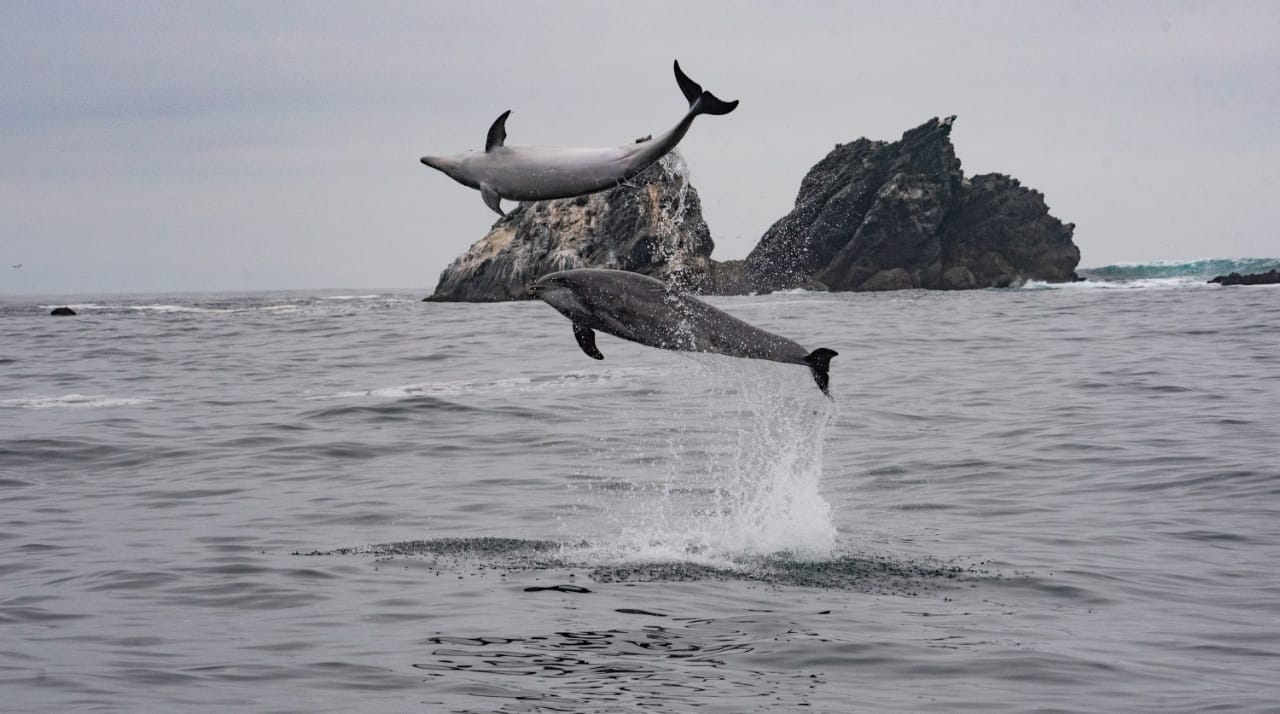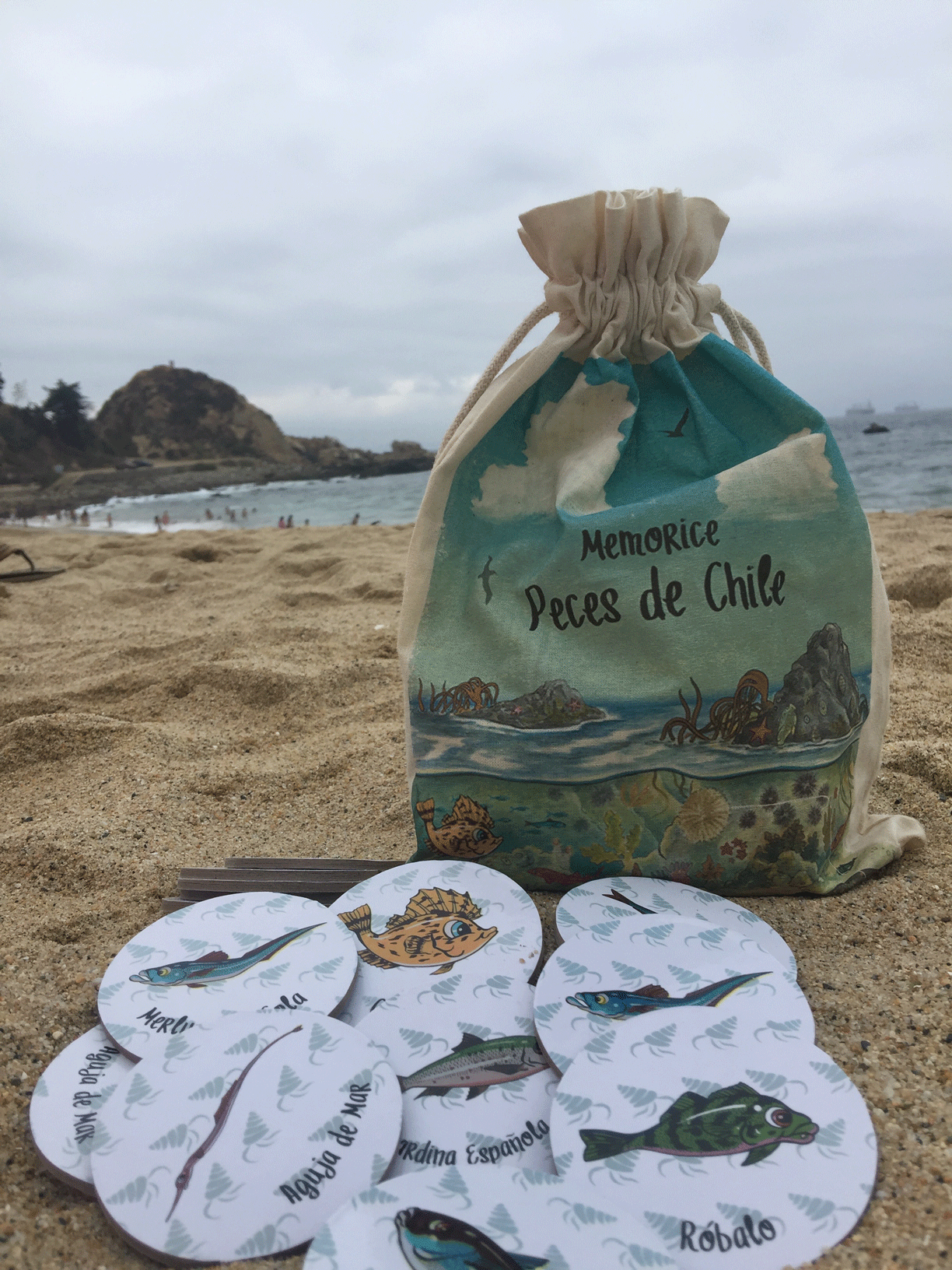 Photo: Geoturismo Chile
Photo: Geoturismo ChileBy Camila Calderón and Paulo Urrutia
Translation by Taylor Ffitch and George Chambers
The oceans play a vital role in the regulation of the atmosphere, the temperature, and the existence of live on our planet. It's no accident, given that the oceans cover 70% of the surface of the Earth. For us humans, the immensity of the marine universe has been a source of inspiration, theories, and above all, food, for millennia. Yet, we are indebted to our aquatic home. According to the United Nations, approximately 8 million tons of plastic end up in the oceans every year, ravaging wildlife, fishing, and tourism. Contamination from plastics are costing the lives of a million marine birds and 100,000 marine mammals a year. Plastic costs 8 billion dollars a year in damages to the marine ecosystem every year. More than 70% of life on Earth is found in marine waters, but just 1 percent of the ocean's surface is protected. In the year 2025, there will be an estimated 1 kilo of plastic for every 3 kilos of fish in the ocean.
The reality of our country also reflects the impact of over-exploitation of marine species. Chile is one of the ten most important fishing countries in the world. With its 4,000 kms of coastline, it is the tenth largest exclusive economic zone. Only 30% of our territory is continental, while the rest is ocean (yes, 70% of our sovereignty.) The majority of fishing boats export or convert fish derivatives such as flour or oil that feed other fish in the industry. Our country is sixth worldwide in fish and fish product exports. On the other hand, according to data from Subpesca, in 2017, 62% of fisheries in Chile were over-exploited or depleted. However, these statistics did not include illegal fishing, which results in the exploitation of over 320,000 tones every year, generating over 300 million dollars per year. The view is not promising when we recognize the impacts of the mining, port, energy, aquaculture, and forestry industries on coastal marine biodiversity. Our social, economic, and cultural development has a deep relationship with our oceans, so our well-being is linked to theirs. This means it is of the utmost importance that we bring the river-ocean interrelationship to the forefront, along with the need for coastal life to have access to healthy watersheds and rivers free from contamination.
In this scenario, understand to protect is more than a cliched phrase. For many of the negative practices that occur on our oceans, people aren't aware of the impact. The fish that we all know are those destined for human consumption, and this idea that marine species are inexhaustible leads to a lack of interest in knowing and learning. The fish are perceived as a resource, without understanding the impact they have on the ecosystem. If a species plays an important role in our nutrition and is also a source of income for our country, all the more reason that our institutions and people should know about its status, conditions, and role in the ecosystem to be able to put it to reasonable, responsible, and sustainable use.
 Photo: Ermitaño.cl
Photo: Ermitaño.cl Photo: Ermitaño.cl
Photo: Ermitaño.clVarious research and education programs are currently put on by institutions, NGO's and groups interested in valuing our country's oceanic inheritance. One of these initiatives is the game Memory: Fish of Chile which seeks to raise awareness about the diversity of native fish that inhabit our coast using fun cartoons. These cartoons of Chilean fish were done by the artist Alberto de Fobos at the Talcahuano Marine Museum some 40 years ago for environmental education of children. The museum closed in the late 1980's, but thanks to the ability to use an ex-SERNAPESCA office space, it was able to re-open in 2007. However, in 2010 the tsunami came and completely destroyed this new project. Among the memories, debris, and mud, the family recovered a folder with some of the cartoons, which they held on to with great care. Thanks to a collaboration with designers and scientists, they were able to turn the drawings into the game Memory: Fish of Chile 1 with 46 pieces and 23 species. Due to its success, Memory: Fish of Chile 2 with 16 species is now available. Among them you will find species such as shark, bass, anchovies, cowfish, mariposa, moray eels, and many more!
Board games in general have had a spike in importance lately. They are a fun way to learn and acquire varied skills, in addition to becoming common ground among groups of friends, family, or even strangers. A game like Memory allows participants to improve their short-term visual memory, improve concentration, and develop language and cognitive skills. Plus, if you play against the clock you get used to thinking and making decisions quickly. Memory: Fish of Chile is undoubtedly one of the best options, not just for entertaining all participants, but also to educate them about the rich biodiversity our coast is home to. Find it in Taller Siete Colores in Santiago, or on Ermitano.cl on social media sites.
Would you like to have a game to learn about the volcanoes, rivers, and mountains you grew up with? Learn more at geoturismochile.cl
"Play, as innocent as it may seem, exposes similarities and likenesses, because when we play with someone there are no borders, no hierarchies, no biographies: play is a space for all."
- Albert Sánchez Piñol

